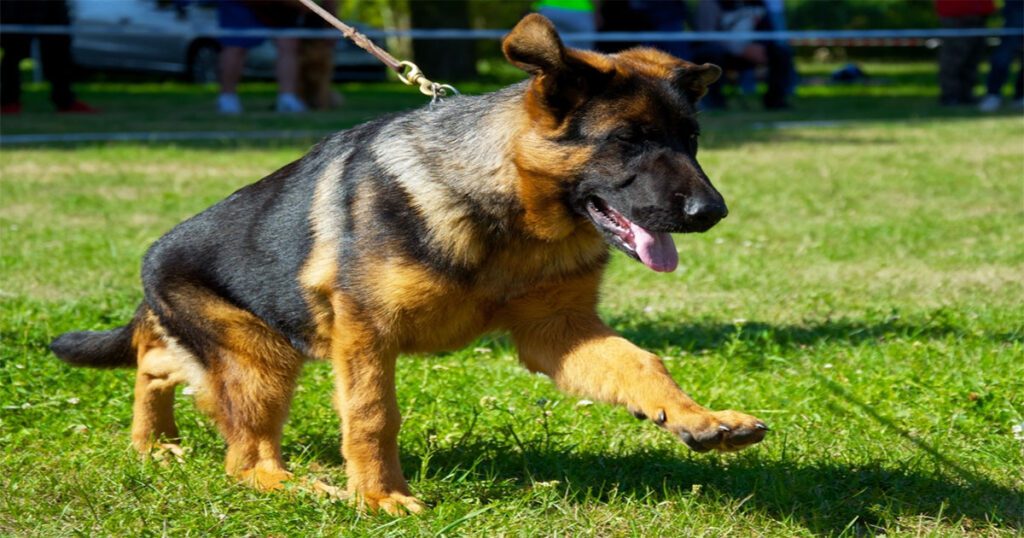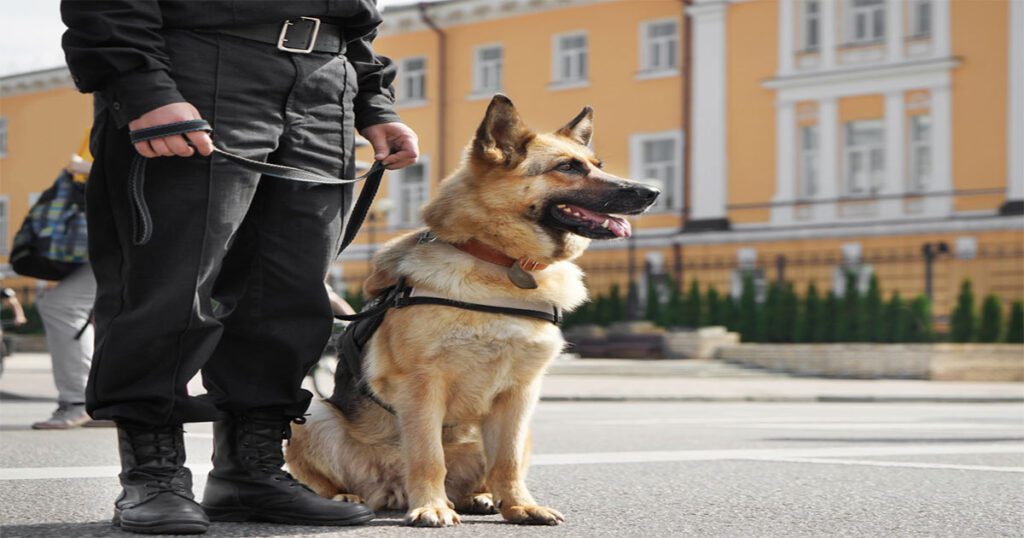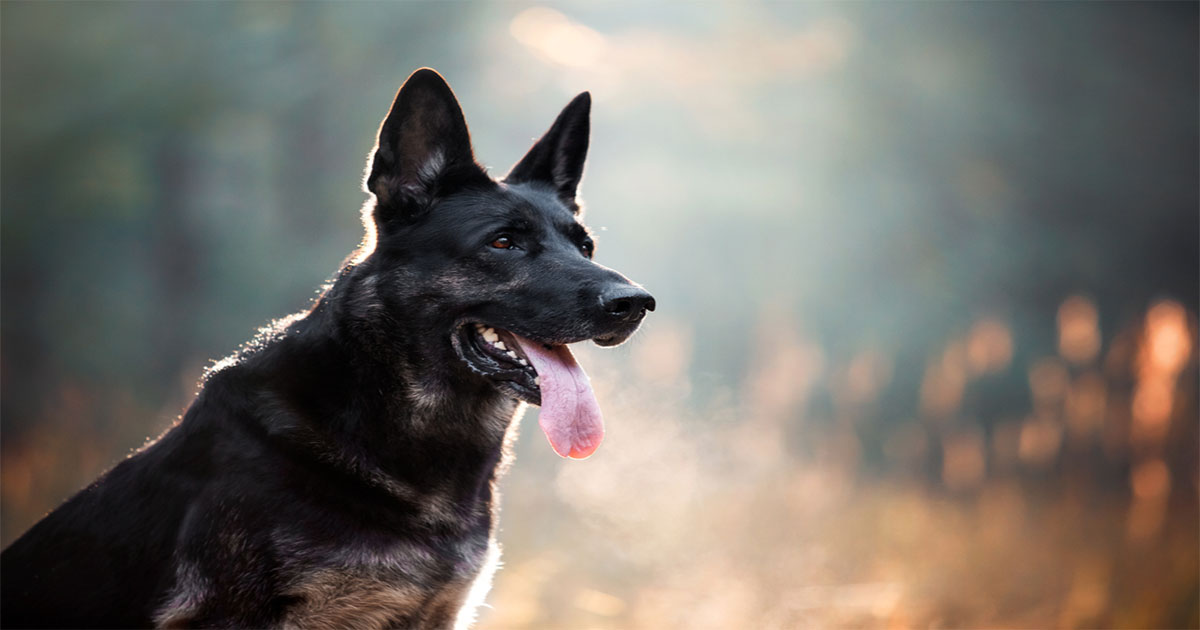If you want to choose a loyal and intelligent companion, the German Shepherd dog undoubtedly tops the list. Renowned for their versatility, loyalty, and unmatched work ethic, they are widely regarded as one of the best dog breeds in the world.
In this comprehensive guide, we will delve deep into the world of German Shepherds, exploring their unique characteristics, training requirements, health considerations, and much more.
Whether you’re a seasoned GSD owner or contemplating bringing one into your family, this article will provide you with invaluable insights and information.
So, let’s dive in and discover why the they is truly the best dog companion you can have!
Table of Contents
The History of German Shepherds
To truly understand the German Shepherd breed, it’s essential to explore their fascinating history. They originated in Germany in the late 19th century and were initially bred as herding dogs.
Captain Max von Stephanitz is credited with standardizing the breed and shaping them into the remarkable dogs we know today.
Their intelligence, agility, and protective instincts quickly caught the attention of law enforcement agencies and the military, leading to their widespread use in various working roles.
German Shepherds have excelled in tasks such as search and rescue, police work, and even serving as guide dogs for the visually impaired.
Key Characteristics
German Shepherds possess a unique combination of traits that make them stand out among other breeds. Let’s explore some of their key characteristics:
1. Intelligence
They are renowned for their high intelligence. They consistently rank among the top breeds in terms of trainability and problem-solving abilities. This intelligence makes them highly versatile and allows them to excel in various roles, including working dogs, therapy dogs, and even in competitive dog sports.
2. Loyalty
One of the defining traits of the German Shepherd breed is their unwavering loyalty. They form strong bonds with their families and are incredibly protective. Whether you’re looking for a loving companion or a reliable guardian, the GSD will always have your back.
3. Trainability
Due to their intelligence and eagerness to please, GSD are highly trainable. They thrive in environments where they receive consistent training and mental stimulation. Training not only helps them become well-behaved family members but also allows them to utilize their intelligence effectively.
4. Physical Abilities
GSD’s are medium to large-sized dogs with sturdy and athletic build. They possess impressive agility, strength, and endurance, which makes them well-suited for physically demanding tasks.
Their robust physique enables them to excel in activities such as agility training, obedience trials, and even sports like dock diving.
5. Protective Nature
They have a strong protective instinct toward their families and territories. This quality makes them excellent guard dogs and reliable protectors.
It’s important to provide proper socialization and training to ensure their protective nature is channeled appropriately.
Training Your German Shepherd
Proper training is crucial for German Shepherds to become well-rounded and obedient companions. Here are some key training tips to help you establish a strong bond with your GSD:
1. Start Early
Begin training your German Shepherd as early as possible. Puppies have a remarkable capacity to learn and absorb information, so take advantage of their early developmental stages to lay a solid foundation for their training.
2. Use Positive Reinforcement
Positive reinforcement is a highly effective training method for GSD’s. Reward-based training, using treats, praise, and play, encourages desired behaviors and helps build a positive association with training sessions.
3. Consistency is Key
Consistency is vital when training a German Shepherd. Establish clear rules and expectations and ensure that everyone in the household follows them consistently. They thrive on routine and clear boundaries.
4. Socialization
Early and ongoing socialization is crucial for German Shepherds. Expose them to various environments, people, and animals to help them develop appropriate social skills and prevent behavioral issues.
Enroll them in puppy classes or engage in regular playdates with other friendly dogs.
5. Mental Stimulation
In addition to physical exercise, German Shepherds require ample mental stimulation. Engage their minds with puzzle toys, obedience training sessions, and interactive games. Mental stimulation helps prevent boredom and promotes a well-balanced and contented dog.
Common Health Concerns
While German Shepherds are generally healthy dogs, like any breed, they are prone to certain health issues. It’s essential to be aware of these conditions to ensure early detection and proper management. Here are some common health concerns for GSD’s:
1. Hip and Elbow Dysplasia
GSD are susceptible to hip and elbow dysplasia, which are developmental conditions affecting the joints. Regular exercise, a balanced diet, and maintaining a healthy weight can help minimize the risk of these conditions.
2. Degenerative Myelopathy
Degenerative myelopathy is a progressive neurological disease that affects the spinal cord of German Shepherds. It can lead to hindlimb weakness and paralysis. While there is no cure, early detection, and supportive care can help manage the condition and maintain the dog’s quality of life.
3. Gastric Dilatation-Volvulus (Bloat)
Bloat is a life-threatening condition characterized by the twisting of the stomach. It primarily affects large, deep-chested breeds like GSD’s.
Feeding smaller, frequent meals, avoiding vigorous exercise after meals, and using elevated food bowls can help reduce the risk of bloat.
4. Exocrine Pancreatic Insufficiency (EPI)
German Shepherds are predisposed to EPI, a condition where the pancreas fails to produce enough digestive enzymes. Symptoms include weight loss, diarrhea, and poor coat condition.
EPI can be managed with enzyme replacement therapy and dietary modifications.
5. Allergies
German Shepherds can develop allergies to environmental factors, food ingredients, or fleas. Allergies may manifest as skin irritations, excessive scratching, and gastrointestinal issues.
Identifying and avoiding the allergen, along with veterinary guidance, is key to managing allergies effectively.
Finding the Best German Shepherd Dog
You’re on a mission to find the ultimate canine companion, and nothing less than the best will do. The search for your perfect four-legged partner requires a discerning eye and a keen understanding of what to look for.

Finding the Best Dog German Shepherd
Choosing a Reputable Breeder or Adopting from a Rescue
German Shepherds are majestic creatures, and the road to finding your ideal companion begins with selecting the right source.
A reputable breeder or a trusted rescue organization can make all the difference. Seek breeders with a proven track record, individuals who prioritize the health and well-being of their dogs above all else.
Look for breeders who promote responsible breeding practices, ensuring that the lineage of your German Shepherd is strong, healthy, and free of genetic ailments.
Rescues can be a noble path to embark on, providing a home for deserving dogs in need. The love and loyalty of a rescued German Shepherd can be immeasurable, making the world a better place one adoption at a time.
Evaluating Health and Temperament
Your future German Shepherd’s health and temperament are paramount considerations. A healthy dog is a happy dog, and it all begins with a thorough evaluation.
Request access to medical records, ensuring that vaccinations, regular check-ups, and preventative care have been diligently administered. Take the time to meet the dog in person, observing their behavior and interactions.
Look for signs of vitality, alertness, and a balanced temperament. A well-socialized German Shepherd should exude confidence and exhibit a natural curiosity.
Observe how they respond to stimuli, both humans and other animals. By carefully assessing health and temperament, you’re laying the foundation for a long-lasting partnership.
Considerations for Selecting a Puppy or an Adult Dog
Puppies, with their playful energy and unbridled enthusiasm, hold an undeniable charm. However, the decision between a puppy and an adult dog depends on your individual circumstances and preferences.
Puppies require time, patience, and a commitment to early training and socialization. If you’re up for the challenge, the rewards can be immeasurable.
On the other hand, adult German Shepherds come with their own unique advantages. They may have already undergone training and possess a more settled temperament.
Adult dogs often find themselves in rescue organizations, yearning for a second chance at a forever home. Consider your lifestyle, the time you can dedicate, and the specific qualities you seek in a German Shepherd, allowing your decision to align with your heart and practicality.
German Shepherd Temperament and Personality Traits
With proper socialization and training, they can be friendly and affectionate towards their families while displaying an instinct to guard and protect.
Grooming Needs for GSD’s
German Shepherds have a dense double coat that requires regular grooming to keep it healthy and free from mats and tangles.
They shed moderately throughout the year and heavily during seasonal shedding periods. Regular brushing, bathing as needed, nail trimming, and ear cleaning are important parts of their grooming routine.
Best Training Techniques
German Shepherds excel in training due to their high intelligence and eagerness to please. Positive reinforcement methods, such as reward-based training using treats, praise, and play, work best for this breed.
Consistency, patience, and clear communication are key to successful training, whether it’s basic obedience, advanced skills, or specialized tasks.
German Shepherds as Service Dogs

German Shepherds as Service Dogs
German Shepherds make excellent service dogs due to their intelligence, versatility, and trainability.
They are often trained to assist individuals with disabilities, such as guide dogs for the visually impaired, hearing dogs for the deaf, and service dogs for those with mobility limitations or medical conditions.
Their calm demeanor, focus, and ability to learn complex tasks contribute to their success in this role.
GSD’s in Search and Rescue
German Shepherds have a long history of serving in search and rescue operations. Their exceptional sense of smell, agility, and determination make them valuable assets in locating missing persons or survivors in disaster-stricken areas.
Their ability to cover large areas efficiently and work in challenging environments has earned them a reputation as one of the top breeds in search and rescue work.
German Shepherds in Law Enforcement
German Shepherds have a strong presence in law enforcement agencies worldwide. Their intelligence, obedience, and protective nature make them ideal for tasks such as police work, narcotics and explosives detection, and tracking suspects.
Their loyalty and willingness to work closely with their handlers contribute to their effectiveness in maintaining law and order.
German Shepherds in Competitive Dog Sports
German Shepherds thrive in competitive dog sports that test their physical and mental abilities. Activities such as obedience trials, agility competitions, and Schutzhund (protection dog) trials provide outlets for their energy and allow them to showcase their skills.
These sports promote bonding between handlers and their GSD’s while enhancing their overall obedience, athleticism, and problem-solving capabilities.
GSD’s and Aggression
German Shepherds, like any other breed, can exhibit aggression under certain circumstances. This topic explores the various factors that may contribute to aggression in GSD’s, including fear, territorial behavior, and improper socialization.
It also provides insights into identifying signs of aggression and offers guidance on how to manage and address aggressive behavior responsibly and effectively.
GSD’s and Separation Anxiety: Tips for Coping

GSD’s and Separation Anxiety
Separation anxiety is a common issue among them. This topic delves into the causes and symptoms of separation anxiety, emphasizing the breed’s deep bond with their owners.
It offers practical tips and strategies to help German Shepherd owners alleviate separation anxiety, such as gradual desensitization, crate training, and the use of calming techniques and interactive toys.
Building a Safe and Loving Relationship With Children
German Shepherds can form wonderful bonds with children when proper introductions and interactions are facilitated. This topic highlights the importance of teaching children how to interact safely and respectfully with German Shepherds.
It guides supervision, establishing boundaries, and incorporating positive reinforcement techniques to foster a loving and harmonious relationship between GSD’s and children.
GSD’s Nutrition and Diet Tips
Proper nutrition plays a vital role in the overall health and well-being of German Shepherds. This topic offers insights into their dietary needs, including the importance of balanced meals, portion control, and appropriate feeding schedules.
It discusses the benefits of high-quality dog food and explores common dietary issues, such as food allergies and sensitivities, to help owners make informed decisions about their their nutrition.
Common GSD’s Myths and Misconceptions
German Shepherds are surrounded by various myths and misconceptions. This topic aims to debunk common misconceptions associated with the breed, such as aggression tendencies, the need for excessive exercise, and difficulty in training.
German Shepherds and Travel: Tips for Road Trips and Air Travel
Traveling with GSD’s requires careful planning and preparation. This topic offers practical tips for both road trips and air travel with German Shepherds.
It covers topics such as securing them safely in vehicles, packing essential items for the journey, acclimatizing them to travel crates, and understanding airline regulations for flying with pets.
With these tips, owners can ensure a smooth and stress-free travel experience for both themselves and their GSD’s.
Hot Weather Safety: Preventing Heat-Related Issues
German Shepherds are sensitive to hot weather, and owners need to take precautions to protect them from heat-related issues. This topic provides valuable insights into recognizing signs of heat stress and heatstroke in German Shepherds.
It offers practical tips for keeping them cool, including providing shade and fresh water, avoiding exercise during peak heat hours, and using cooling products or techniques. By following these guidelines, owners can ensure their GSD’s well-being during hot weather conditions.
Frequently Asked Questions
Q 1: Are German Shepherds good with children?
Answer: Yes, German Shepherds can be excellent family dogs and are generally good with children. However, early socialization and supervision are crucial to ensure positive interactions between children and dogs.
Q 2: Do German Shepherds require a lot of exercise?
Answer: Yes, they are an active breed and require regular exercise to keep them physically and mentally stimulated. Daily walks, playtime, and engaging activities are essential to their well-being.
Q 3: Are German Shepherds suitable for first-time dog owners?
Answer: While GSD’s are highly intelligent and trainable, they require experienced handling and consistent training. First-time dog owners may benefit from working with a professional trainer to ensure they meet the breed’s needs effectively.
Q 4: How long do German Shepherds usually live?
Answer: The average lifespan of a German Shepherd is around 10 to 12 years. With proper care, regular veterinary check-ups, and a healthy lifestyle, some GSD’s can live even longer.
Q 5: Are German Shepherds prone to excessive shedding?
Answer: Yes, GSD’s have a dense double coat that sheds throughout the year. Regular brushing can help manage shedding, but expect some level of shedding to be a part of owning this breed.
Q 6: Can German Shepherds adapt to apartment living?
Answer: They are energetic dogs that require ample exercise and mental stimulation. While they can adapt to apartment living with proper exercise, it’s important to ensure they receive enough activity and space to thrive.
Conclusion
In summary, the German Shepherd is a remarkable breed that offers loyalty, intelligence, and versatility like no other. Whether you’re looking for a dedicated working partner, a loyal family companion, or an active athlete, they can fulfill all these roles and more.
With their striking appearance, unmatched trainability, and unwavering loyalty, it’s no wonder why they are often hailed as the best dog companion. Remember to provide them with proper training, socialization, and healthcare to ensure they lead happy and fulfilling lives.
So, if you’re ready to embark on a journey with a truly exceptional dog, the German Shepherd awaits you with open paws!

I’m David, an expert contributor and writer, with two furry friends of my own, I know the challenges of raising and caring for dogs. From training to nutrition and health, my goal is to provide valuable insights and advice to help create strong bonds and happy, healthy lives. Find me in Twitter.




